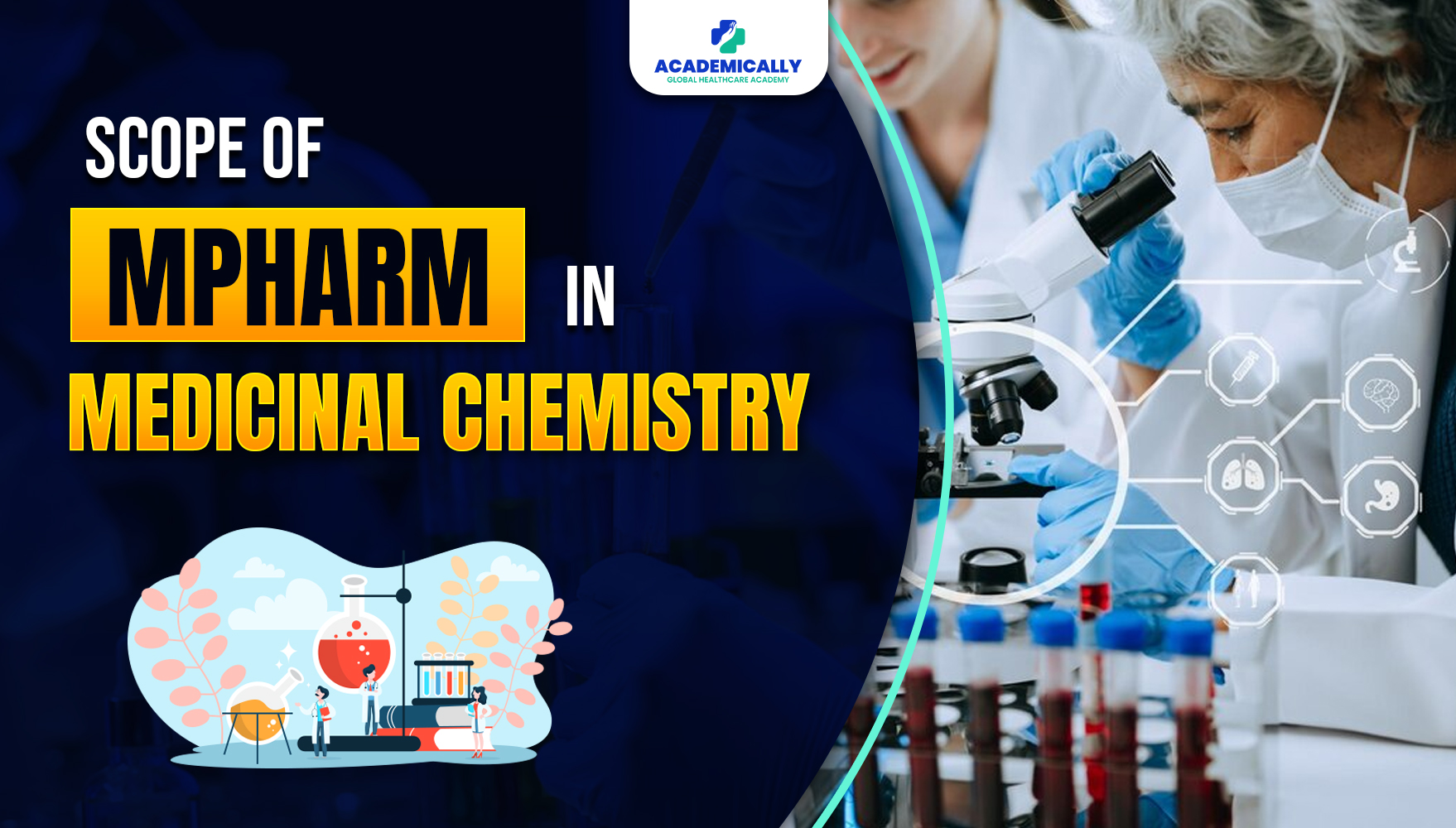What is an MPharm in Medicinal Chemistry?
A Master of Pharmacy (M.Pharm) in Medicinal Chemistry is a postgraduate program that dives into a fascinating world where chemistry meets medicine. This course equips you with the knowledge and skills to design, synthesise, and develop new pharmaceutical drugs. It's a perfect blend of subjects like organic chemistry, pharmacology, biochemistry, and computer-aided drug design.
Course Structure and Curriculum
An MPharm in Medicinal Chemistry typically spans two years, divided into four semesters. The curriculum can vary slightly depending on the university, but you can expect to cover a comprehensive range of topics, including:
- Advanced Organic Chemistry: This forms the foundation for building your expertise in organic synthesis and reaction mechanisms, which are crucial for creating new drug molecules.
- Medicinal Chemistry: Here, you'll enter the exciting world of drug design, understanding how structure-activity relationships (SAR) influence a drug's efficacy and safety.
- Pharmacology: This section explores how drugs interact with the body, their mechanisms of action, and how they impact various physiological systems.
- Computer-Aided Drug Design (CADD): In today's world, computational tools play a vital role. You'll learn to leverage CADD software to model and design new drug candidates.
- Drug Metabolism and Pharmacokinetics (DMPK): Understanding how the body absorbs, distributes, metabolises, and excretes drugs is essential for their safe and effective use.
In addition to theoretical knowledge, MPharm programs also incorporate practical training through laboratory sessions. You'll gain hands-on experience in organic synthesis, analytical techniques, and in-vitro and in-vivo drug evaluation methods.
Career Prospects
Graduates of MPharm in Medicinal Chemistry programs are in high demand across various sectors of the pharmaceutical industry, academia, and government agencies. Here are some promising career paths.
Medicinal Chemist: As experts in drug design and synthesis, graduates can pursue careers as medicinal chemists in pharmaceutical companies, where they contribute to the discovery and optimisation of new therapeutic agents. Roles may involve designing and synthesising novel compounds, conducting structure-activity relationship studies, and optimising drug candidates for efficacy and safety.
Research Scientist: With a strong foundation in research methodologies and practical laboratory skills, graduates can embark on careers as research scientists in academic institutions, research organisations, or government agencies. They may conduct cutting-edge research in drug discovery, chemical biology, or pharmacology, aiming to unravel the molecular basis of diseases and develop innovative treatments.
Pharmaceutical Analyst: Proficiency in analytical techniques equips graduates for roles in pharmaceutical analysis and quality control. They may work in pharmaceutical companies or regulatory agencies, ensuring the safety, quality, and efficacy of pharmaceutical products through rigorous testing and analysis.
Drug Development Specialist: Graduates may pursue roles in drug development, where they contribute to the translation of promising drug candidates from the laboratory to clinical trials. Responsibilities may include preclinical testing, formulation development, and regulatory affairs.
Academic/Industry Researcher: Some graduates choose to pursue further academic or industrial research through doctoral studies (PhD) in medicinal chemistry or related fields. This path offers opportunities to conduct independent research, publish scientific findings, and contribute to advancements in the field.
Entrepreneurship and Innovation: Armed with knowledge and skills in medicinal chemistry, entrepreneurial-minded graduates may venture into the biotechnology or pharmaceutical startup scene, aiming to commercialise innovative drug discoveries or technology platforms.
Contract Research Organizations (CROs): CROs provide research and development services to pharmaceutical and biotech companies. Medicinal chemists play a crucial role in these organisations, designing and synthesising new drug candidates based on client needs.
Regulatory Affairs: Medicinal chemistry expertise is valuable in regulatory affairs, where you can ensure the safety and efficacy of drugs during the approval process.
Patent Law: Understanding the intricate details of drug molecules can be an asset in patent law, where you can specialise in intellectual property related to pharmaceuticals.
Conclusion
The MPharm in Medicinal Chemistry offers a multifaceted education that prepares students for rewarding careers at the forefront of drug discovery and development. With a blend of theoretical knowledge, practical skills, and research experience, graduates are well-equipped to address the complex challenges of modern healthcare and make significant contributions to improving global health outcomes. It equips you with the expertise to be at the forefront of scientific breakthroughs and contribute meaningfully to improving human health. Suppose you possess a strong foundation in chemistry, a keen interest in biology, and a passion for innovation. In that case, this specialised degree can be the launchpad for a fulfilling career in the ever-evolving world of pharmaceutical discovery.
Fill up this form for a free one on one counselling session.




